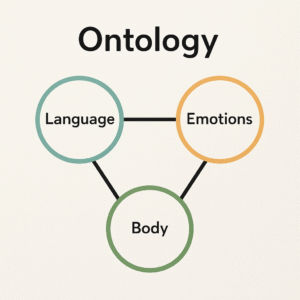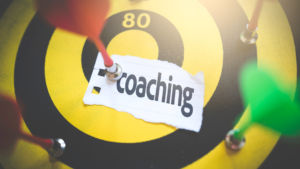Ego.
Ego is a sense of self. Sometimes it can take you up; most times it can bring you down. It’s an illusion that creates a mask over our minds.
Almost every religion refers to the ego as an ultimate evil, destroyer of relationships. Sanatana Dharma refers to it as an obstacle in worldly and spiritual happiness.

My awareness of the ego within me came during the career transition. The need to free up my time (I was working for 10 hours) and do something meaningful vs staying in the comfort zone with a steady income. Where is ego in this, you may ask?
The ego surfaced with this thought – Once out of job, I needed to rely on my husband for money. You see I have been an independent working woman for more than 23 years and to ask for money.. was shameful to me. I had never even asked for money from Dad since 1995. I struggled to understand why I was feeling this. It took me 2 years to realise what was the root cause before I took the decision to quit. I had to work on my ego.
I am sure Ego in some form was always there within me. But that was the first time I truly became aware of it.
The most recent example was when I was extending help to my friend running a workshop. I am a trainer /facilitator, I am open about learning new things. However, while promoting her workshop to my network, she asked me why don’t you join as well?
I said sure from the point that I wanted to help her.
Frankly, my approach was what can I learn here, I have seen the agenda of the program, what else can she teach me. I know everything. Ego.
But my sense to help her was higher, so I signed up for it.
I was the best decision because I had learned so much about my own approach to my business, how many times I do get off track, off focus, and what I need to do for exponential growth.
The point is the moment I recognized the presence of ego, I worked on getting over it. The outcome was true learning.
The ego is already within us. It’s good if it fuels us to move forward. If we’re mindful of its existence, we can use it constructively.
So the question I have for you is – Are you using your ego constructively?
Congratulations if you are.
If you’re not, then here are three steps you can follow to work on –
1. Awareness –
Are you aware of your ego?
When did it last appear?
What did it make you do?
What was the outcome of it?
Awareness is the first step to any change.
This may take some inner deep work, reflection & retrospection. Believe me, awareness of ego can do you a lot of good. It can help you control and channelize your behavior.
Remember it is up to you to decide if you want to control your ego or let it control you. Once you see the pattern of that choice, you can decide what you want to do about it
2. Acceptance –
If your ego controls you it won’t let you accept that it exists. Acknowledging and accepting takes a lot of courage. Assuming you are now aware of its presence, the best way to accept it, is by retrospection. Look at an incident in your life where your ego was/is the root cause of some pain, possibly in a relationship.
You may resist or deny its existence but try it, just for fun. Or prove me wrong.
If you feel the surge of tension during this exercise, just breathe deeply, deliberately, and release it. Then try again.
3. Actionables –
How can you use this ego constructively?
If you cannot, how can you let it go?
Here, I suggest you use the awareness you had in identifying at what point /situations did the ego rise up in you in the past and what options do you have to work around it.
For example – in my case, I felt it rise with the thought of feeling shameful (the thought of asking help from hubby) or arrogance (the thought of learning from a peer). Since my thoughts are the root cause, replacing the thoughts and changing the narrative was my actionable.
You decide what you want to do and how you want to use it.
To conclude I want to reiterate. There is nothing shameful in acknowledging the presence of ego. With the above steps, you can take control of yourself.
This simple yet powerful 3A model – Awareness, Acceptance & Actionables helps in making lasting behavioral change. It is faster and easier when you have guidance. I have used this tool with many clients to push through their inner emotions and take control of their life.
Each stage takes time and some intense work so that the transformation is permanent. Do reach out if you need help.
Good luck! 🙂

Aparna is a behavioural coach with a passion to support people who want to help themselves. She is an avid YouTube and publishes weekly videos. For more information and to reach out to her click here



